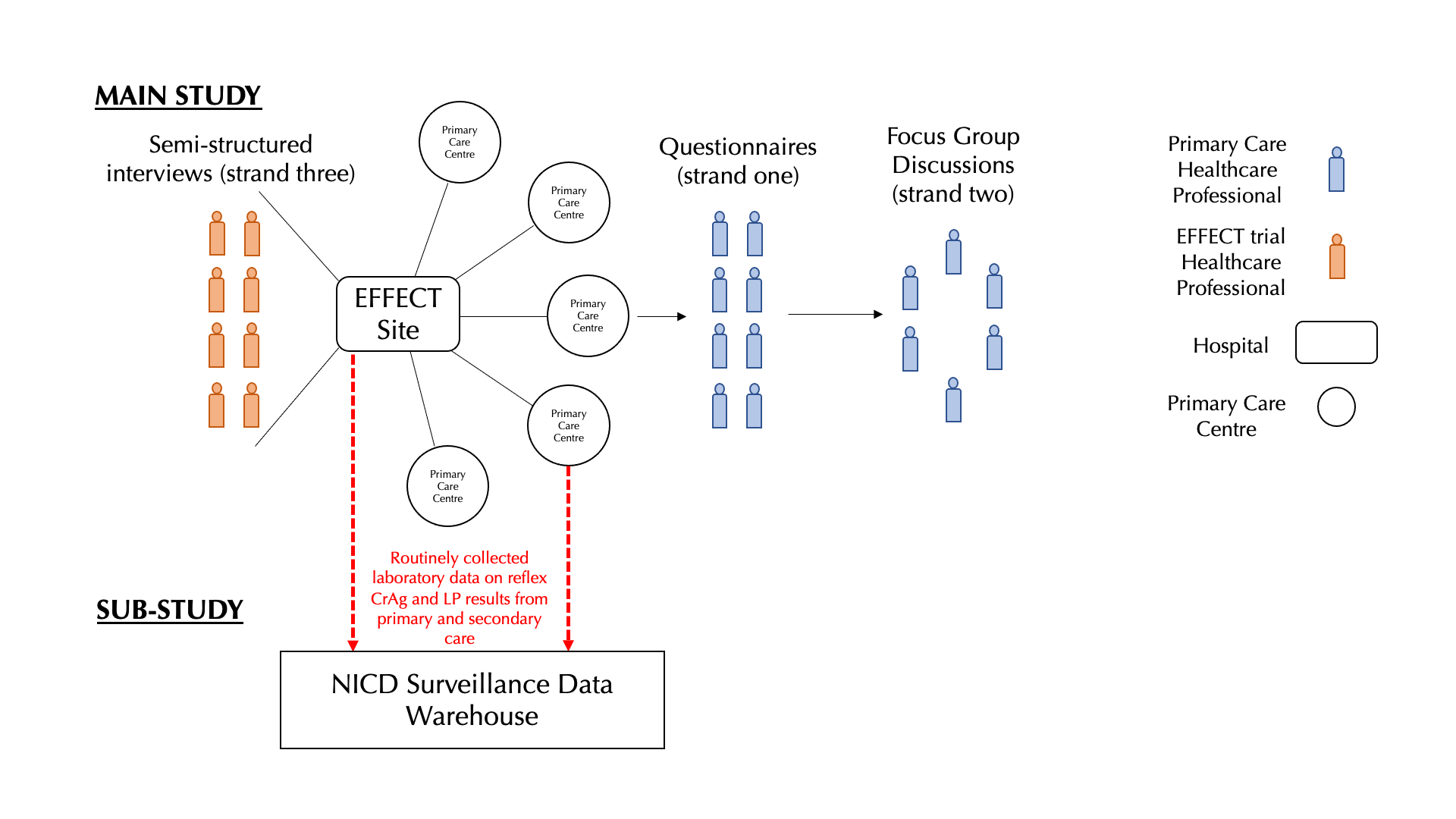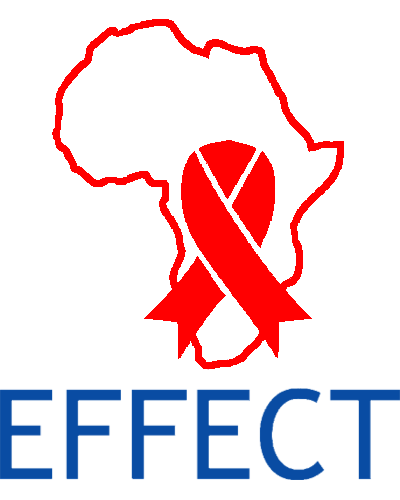Cryptococcal antigenaemia case-finding and management: A mixed-methods study in South Africa
Background:
Cryptococcal meningitis is a fungal infection of the brain and spinal cord that almost exclusively causes disease in patients with compromised immune systems (such as advanced HIV). Even with early diagnosis and treatment as many as 3 out of 10 people with this disease will die. There is increasing recognition of an early form of this disease called cryptococcal antigenaemia (before patients develop symptoms). The EFFECT study is trialling a new combination regimen in treating patients with antigenaemia, seeing if it improves outcomes compared to the current single-drug standard of care.
However, it is widely accepted that only a small fraction of patients who need treatment for cryptococcal antigenaemia (or meningitis) actually receive it and there are potentially many barriers to universal coverage in South Africa. This study aims to better understand the way in which the healthcare system provides for patients with advanced HIV and potential cryptococcal infection.
We aim to assess healthcare professionals' knowledge and understanding of the recommended guidelines for screening, diagnosing and managing patients with cryptococcal infection. Subsequently, a more in-depth assessment of the systems used by the primary care centres attached to the EFFECT trial will be carried out. This will identify the exact mechanisms that are used to manage patients, while also getting staff opinions on the barriers to universal and timely management and ways in which they can be improved. A particular focus will be on the use of an automated system for notifying staff of results, Results for Action (RFA), which has become more widely adopted since the implementation of the EFFECT trial. To further assess this, we will investigate whether, since the EFFECT trial, patients are investigated more quickly than they were at those same sites before the EFFECT trial or than at sites where the EFFECT trial is not operating.
Study Aim:
To better understand the systems that care for patients with suspected cryptococcal antigenaemia in primary care in South Africa using mixed study methods: cross-sectional questionnaire, semi-structured focus group discussions and semi-structured interviews and analysis of routinely collected laboratory data

Team:
Drs Rhys Wenlock and Síle Molloy are the chief investigators with John Black as the South African PI. Doctors Marise Bremer (PE), Ric Halley-Stott (CT), Gifty Okyere-Manu (Tshepong) and Asha Thombrayil (JHB) are the site PIs with Kyla Comins, Nelesh Govender Thomas Harrison, Joseph Jarvis, David Lawrence, Rudzani Mashau, Jeremy Nel as Co-Investigators.
